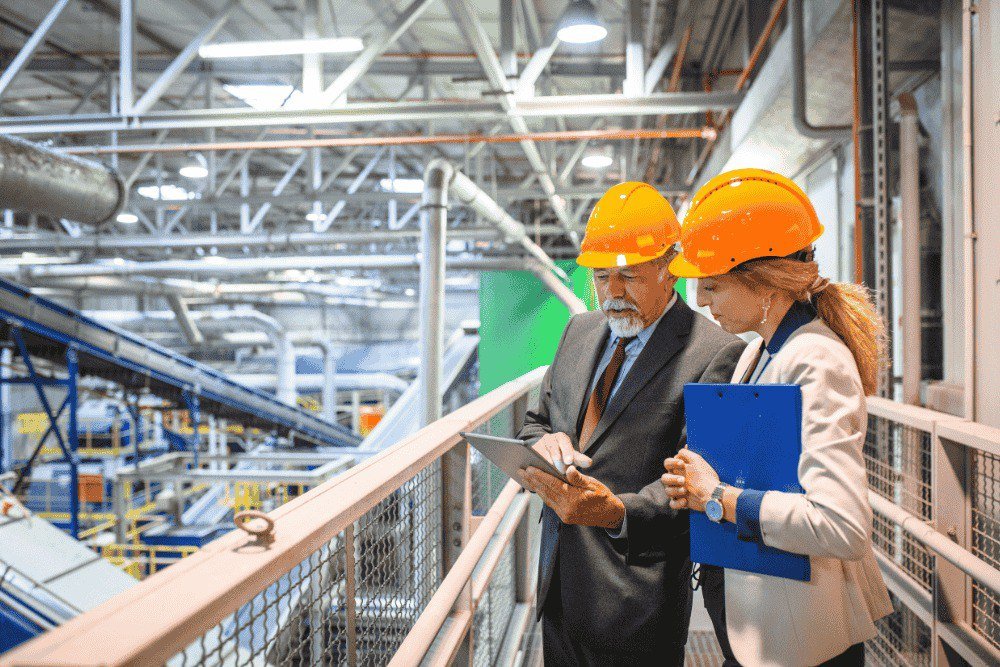Construction Quality Control | Ensuring Project Success
Construction quality control (CQC) is an essential part of any construction project. Without quality control, the risk of errors, delays, and cost overruns significantly increases, ultimately affecting the project’s success. In this blog, we will explore the importance of construction quality control, the various aspects of it, and how you can implement effective strategies to ensure the success of your construction project.
What Is Construction Quality Control?
Construction quality control refers to the set of procedures and practices that ensure the quality of work meets the specified standards and requirements. It involves monitoring, inspecting, and testing the materials, workmanship, and systems during the construction process to guarantee that the project is completed successfully and to the desired quality.
A well-structured quality control program helps avoid costly mistakes and rework by ensuring that all aspects of the project are properly executed from the beginning. It also ensures compliance with all regulatory requirements and industry standards.
Why Is Construction Quality Control Important?
The importance of construction quality control cannot be overstated. Properly managing quality control ensures that the project will meet its scope, timeline, and budget. Here are a few reasons why construction quality control is crucial for any project:
- Minimizes Risk: Effective quality control practices reduce the likelihood of project delays and unexpected costs, mitigating risk.
- Improves Safety: Proper quality assurance ensures that safety standards are met, protecting workers and ensuring a safe work environment.
- Enhances Client Satisfaction: A project delivered on time and within budget with high-quality results fosters client trust and satisfaction.
Key Components of Construction Quality Control
To achieve construction quality control, it’s important to understand the components that make up a comprehensive quality management system. These include:
- Pre-Construction Quality Planning: This phase involves setting clear objectives, determining quality standards, and allocating resources to maintain high-quality work throughout the project.
- Materials Control: The right materials need to be selected, stored, and handled properly to ensure their quality when used during construction.
- Inspection and Testing: Regular inspections and tests are necessary to ensure that materials and workmanship comply with established standards.
- Documentation: Proper documentation of inspections, tests, and deviations is essential for tracking the project’s quality and making improvements where necessary.
How to Implement Construction Quality Control Effectively
Implementing effective quality control practices requires a strategic approach. Here are some steps to help you implement a robust construction quality control system:
- Establish Clear Quality Standards: Define quality standards for all phases of the project, including materials, construction techniques, and final deliverables.
- Train Your Team: Ensure that all team members, from project managers to subcontractors, are properly trained in quality control practices and standards.
- Regular Inspections: Schedule regular inspections to identify any issues early and take corrective actions before they affect the overall project.
- Use Technology: Leverage technology such as construction management software and Building Information Modeling (BIM) to streamline quality control processes.
Construction Quality Control Challenges
Despite its importance, there are several challenges associated with construction quality control. Some of the common obstacles include:
- Inconsistent Quality Standards: Variability in quality control standards across different team members and subcontractors can create issues.
- Lack of Skilled Workforce: Without skilled labor and training, the likelihood of errors increases, affecting the project’s overall quality.
- Poor Communication: Lack of communication between different teams can lead to misalignment and quality issues.
Understanding and addressing these challenges is vital for maintaining effective quality control throughout the construction process.
Best Practices for Maintaining Construction Quality Control
Maintaining quality control throughout a construction project requires a proactive and consistent approach. Here are some best practices for ensuring high-quality outcomes:
- Establish a Quality Control Team: Designate a dedicated team to monitor quality standards and procedures throughout the project.
- Develop Detailed Checklists: Use checklists to ensure that all quality control tasks are completed and documented at each phase of the project.
- Focus on Continuous Improvement: Implement a feedback loop where lessons learned from past projects or ongoing issues are addressed to continuously improve quality control practices.
- Monitor Subcontractors: Ensure that subcontractors adhere to the same quality standards as your team by conducting regular audits and inspections.
Final Thoughts
Construction quality control is essential to ensuring the successful completion of any construction project. By incorporating effective quality control systems, such as clear planning, regular inspections, and continuous improvement, you can avoid errors, reduce risks, and enhance the overall success of your projects.
Implementing quality control is not just about ensuring that the end result meets the client’s expectations; it’s about creating a streamlined, efficient, and safe construction process that can lead to long-term success and satisfaction for all stakeholders.
FAQs about Construction Quality Control
What are the benefits of construction quality control?
Construction quality control provides multiple benefits, including reducing project costs, preventing rework, ensuring safety, meeting regulatory compliance, and ultimately leading to a higher level of client satisfaction.
How do you ensure construction quality control on a project?
To ensure construction quality control, it’s essential to develop clear quality standards, conduct regular inspections and tests, maintain detailed documentation, and provide ongoing training to workers and subcontractors. Using technology like construction management software can also help streamline the process.
What are the most common quality control challenges in construction?
Common challenges include inconsistent quality standards, lack of skilled labor, poor communication among project teams, and difficulty in monitoring subcontractors’ work. Overcoming these challenges requires careful planning, training, and consistent monitoring.
How does construction quality control affect project timelines?
Effective quality control can prevent delays by identifying potential issues early in the process, allowing for prompt corrective actions. When quality standards are adhered to, projects are more likely to stay on schedule, as fewer delays occur due to mistakes or rework.
Is quality control the same as quality assurance in construction?
While the terms are related, quality control (QC) refers to the process of inspecting and testing the quality of work and materials to ensure they meet the required standards, while quality assurance (QA) refers to the proactive planning and processes set up to prevent defects in the first place. Both are crucial to the success of a project.
Ready to Take Your Construction Projects to the Next Level?
Description: Book your Free Consultation today and discover how we can help you plan, manage, and execute your projects with efficiency and confidence.




